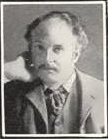Two-member seat

Map of current boundaries
1832–1868: The old borough of Preston, and the township of Fishwick. [2]
1868–1885: The existing parliamentary borough, excluding such part (if any) as lies on the south side of the River Ribble. [3]
1885–1918: The existing parliamentary borough, so much of the municipal borough of Preston as was not already included in the parliamentary borough, so much of the parish of Lea, Ashton, Ingol, and Cottam, and of the parish of Penwortham, as were added to the municipal borough of Preston on 1 June 1889 by the Ribble Navigation and Preston Dock Act 1883, and the local government district of Fulwood. [4]
1918–1950: County borough of Preston and urban district of Fulwood: [5]
Single-member seat
1983–1997: The Borough of Preston wards of Ashton, Avenham, Brookfield, Central, Deepdale, Fishwick, Ingol, Larches, Moorbrook, Park, Ribbleton, St John's, St Matthew's, and Tulketh.
The boundaries of the re-established constituency corresponded to those of former County Borough, with Fulwood being included in the new seat of Ribble Valley.
1997–2010: The Borough of Preston wards of Ashton, Avenham, Brookfield, Central, Deepdale, Fishwick, Larches, Moor Park, Ribbleton, Riversway, St Matthew's, and Tulketh, and the Borough of South Ribble wards of Bamber Bridge Central, Bamber Bridge South, and Walton-le-Dale.
Ingol ward was transferred to Fylde. The Borough of South Ribble wards were transferred from the constituency of South Ribble.
2010–2018: The City of Preston wards of Ashton, Brookfield, Deepdale, Fishwick, Ingol, Larches, Moor Park, Ribbleton, Riversway, St George's, St Matthew's, Town Centre, Tulketh, and University.
Movements in 1997 reversed.
The ward of Lea was within the constituency of Fylde. The wards of Preston Rural North, Preston Rural East and the Fulwood wards (Cadley, College, Garrison, Greyfriars and Sharoe Green) were within the constituency of Wyre and Preston North. By the end of the review, the newly recommended Preston constituency had the smallest number of voters of an English constituency based on 2006 electorates. [6]
2018–2024: In full: Ashton, Brookfield, City Centre, Deepdale, Fishwick and Frenchwood, Plungington, Ribbleton, St Matthews. In part: Cadley (shared with Wyre and Preston North), Ingol and Cottam (shared with Fylde), Lea and Larches (shared with Fylde).
The Local Government Boundary Commission for England modified Preston City Council's ward boundaries and names in 2018, which altered the contents, but not the boundaries of the Parliamentary constituency of Preston. Due to the changes, some wards were shared with neighbouring seats.
2024–present: The City of Preston wards of Ashton, Brookfield, Cadley, City Centre, Deepdale, Fishwick & Frenchwood, Garrison, Ingol & Cottam, Lea & Larches, Plungington, Ribbleton, and St Matthew's.
The constituency was expanded to bring the electorate within the permitted range by transferring in the part wards currently in the Fylde constituency, together with the remainder of the Cadley ward and the Garrison ward from Wyre and Preston North (abolished).









